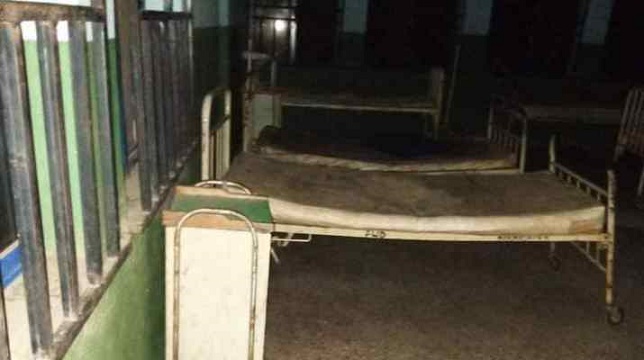Nigeria is facing a crisis in both its health and security sectors. The health sector is struggling to cope with a high burden of disease, a shortage of health workers, and a lack of funding. The security sector is battling a number of challenges, including terrorism, banditry, and communal violence.
The Health Sector:
Nigeria has one of the worst health care systems in the world. The maternal mortality ratio is 814 per 100,000 live births, and the infant mortality rate is 70 per 1,000 live births. Life expectancy is just 54 years.
There are a number of factors that contribute to the poor state of Nigeria’s health sector. One is the shortage of health workers. There are only 3.5 doctors per 10,000 people in Nigeria, compared to the global average of 10.4. The shortage is even worse in rural areas, where there may be only one doctor for a population of tens of thousands of people.
Another factor is the lack of funding. The Nigerian government allocates just 4.2% of its budget to health, well below the 15% target set by the Abuja Declaration in 2001. This lack of funding has led to a decline in the quality of care available in public hospitals.
The health sector is also facing a number of other challenges, such as the spread of HIV/AIDS, malaria, and tuberculosis. These diseases are a major burden on the health system, and they contribute to the high mortality rate.
The Security Sector:
Nigeria’s security sector is also facing a number of challenges. The country is battling a number of terrorist groups, including Boko Haram and the Islamic State West Africa Province (ISWAP). These groups have killed thousands of people and displaced millions more.
The security sector is also struggling to cope with banditry and communal violence. Bandits are armed groups that rob, kidnap, and kill people in rural areas. Communal violence is often triggered by disputes over land, resources, or religion.
The security sector is also facing a number of internal challenges, such as corruption and a lack of accountability. These challenges have made it difficult for the security forces to effectively combat the threats facing the country.
The Way Forward:
The Nigerian government needs to take urgent steps to address the crisis in both the health and security sectors. This will require increased funding, the recruitment of more health workers, and the implementation of reforms to improve the efficiency of the health system.
The government also needs to do more to combat terrorism, banditry, and communal violence. This will require strengthening the security forces and improving the intelligence gathering capabilities of the government.
The crisis in Nigeria’s health and security sectors is a major challenge, but it is one that the government can overcome. With the right policies and investments, Nigeria can improve the health and security of its citizens.
In addition to the above, there are a number of other things that can be done to improve the health and security sectors in Nigeria. These include:
Investing in preventive health care, such as vaccination programs and malaria prevention measures.
Promoting healthy lifestyles, such as eating a balanced diet and exercising regularly.
Addressing the root causes of conflict, such as poverty and inequality.
Building stronger communities, so that people can support each other during times of crisis.
By taking these steps, Nigeria can make progress towards improving the health and security of its citizens.
– Yusuf Eunice
Student of Mass Communication,
Prince Abubakar Audu University Anyigba, Kogi State.





